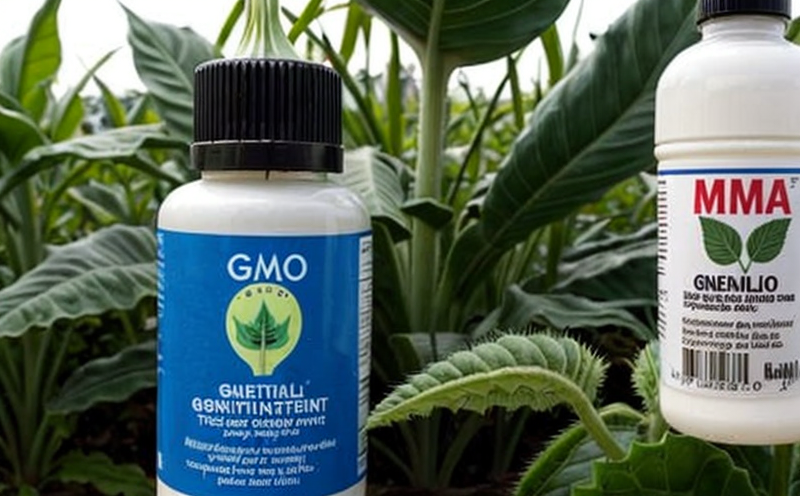ISO 24789 GMO Event-Specific Testing in Rapeseed
The ISO 24789 standard provides a framework for the identification and quantification of genetically modified organisms (GMOs) in agricultural products. This service specializes in detecting specific events within rapeseed, offering precision and accuracy that are crucial for maintaining market integrity.
Rapeseed is one of the most widely used oilseed crops globally, with its cultivation extending across various regions. Ensuring the absence or presence of unauthorized GMOs is essential to meet regulatory requirements and consumer expectations. The ISO 24789 standard focuses on event-specific identification, which means that it targets specific genetic modifications rather than just detecting the presence of GM traits.
The testing process involves several critical steps. Initially, the sample undergoes thorough preparation to ensure homogeneity and representativeness. This includes mechanical grinding followed by sieving to achieve a consistent particle size suitable for downstream analysis. The prepared sample is then analyzed using advanced molecular techniques such as polymerase chain reaction (PCR) and real-time PCR.
The PCR-based methods used in this service are highly sensitive, capable of detecting even minute quantities of DNA. This ensures accurate identification of the target GMO events without cross-reactivity issues. The results from these analyses are meticulously documented and reported according to international standards, providing clients with reliable data they can trust.
Understanding the implications of GMOs in rapeseed requires a broader view of its role in agriculture and food security. Rapeseed is not only used for edible oil production but also finds applications in biofuel and industrial products. The presence or absence of specific genetically modified events can significantly impact these diverse uses, influencing economic decisions and environmental considerations.
Given the global nature of trade in rapeseed and its derivatives, compliance with international regulations is paramount. ISO 24789 supports this by offering a standardized approach to GMO testing that aligns with various national and regional standards. This ensures harmonization across different markets, reducing barriers to trade while enhancing consumer confidence.
The testing process outlined above highlights the importance of precise and reliable identification methods in maintaining market integrity. By adhering strictly to ISO 24789 guidelines, our service provides clients with accurate results that are crucial for regulatory compliance and informed decision-making.
| Standard | Description |
|---|---|
| ISO 24789 | Detailed procedures for the identification and quantification of genetically modified organisms in food, feed, and feed material. |
| ASTM E1503-16 | Standard test method for determining DNA from genetically engineered organisms (GMO) in biological materials using polymerase chain reaction (PCR). |
Why It Matters
Compliance with international standards like ISO 24789 is essential for maintaining market integrity and ensuring consumer trust. In the context of rapeseed, GMO testing helps protect both producers and consumers by preventing unauthorized genetic modifications from entering the supply chain.
- Ensures compliance with regulatory requirements
- Protects against contamination issues
- Enhances consumer confidence through transparent labeling practices
- Aids in maintaining market integrity and fair trade practices
- Safeguards the environment by minimizing potential risks associated with unintended GMO spread
Applied Standards
| Standard | Description |
|---|---|
| ISO 24789:2015 | Detailed procedures for the identification and quantification of genetically modified organisms in food, feed, and feed material. |
| ASTM E1503-16 | Standard test method for determining DNA from genetically engineered organisms (GMO) in biological materials using polymerase chain reaction (PCR). |
Customer Impact and Satisfaction
- Enhanced regulatory compliance through accurate GMO identification
- Reduced risk of contamination leading to product recalls or market rejections
- Increase in consumer trust due to transparent labeling practices
- Better decision-making for producers and traders regarding market entry strategies
- Improved environmental safety by minimizing potential GMO spread risks





